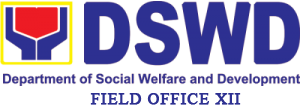GENERAL SANTOS CITY, April 18 – Ranking officials of Department of Social Welfare and Development in Manila led by USEC. Ma. Lourdez Turalde-Jarabe arrived Tuesday to inspect anti-poor programs under President Rodrigo Roa Duterte administration in the region.
DSWD 12 regional director Bai Zorahayda T. Taha said she met the group of USEC. Turalde-Jarabe and discussed how to strengthen the implementation of conditional cash transfer, also known as Pantawid Pamilyang Pilipino Program.
To strengthen operational mechanisms and institutional arrangements among partner agencies, Taha explained the visit of the National Advisory Committee (NAC) with its Technical Working Group, aims to provide venue for the committees to discuss Pantawid Program implementation issues/concerns and identify corresponding policy recommendations and operational improvements.
Taha said Turalde-Jarabe, along with other representatives of partner agencies in Manila, will personally check CCT program in the town of Malapatan in Sarangani.
“The program is on our radar. We are discussing this afternoon at the East Asia Royal Hotel how we can improve the social protection programs of the government,” Taha said.
Juliet Clavel, CCT program coordinator, said members of NAC would visit several villages in Malapatan to interact with the people in the next three days.
Around 5,000 households are currently covered by CCT in Malapatan.
Clavel said the NAC team would look into the transition of exiting beneficiaries and on implementation concerns of children beneficiaries enrolled in senior high school.
At the end of the Field Visit, the NAC and NAC-TWG participants are expected to gain better appreciation of program implementation of the Pantawid Pamilya, including other programs of the department, with particular attention to the transition of exiting beneficiaries.
In Region 12, there are more than 250,000 beneficiaries under the program that requires recipients to send children to public schools and mothers to regularly visit public health centers.
In exchange of that, the program gives each household a P500 monthly allowance to subsidize its basic food needs and additional P300 for every child that goes to school. At least three children from a family can get the school allowance. (End)
